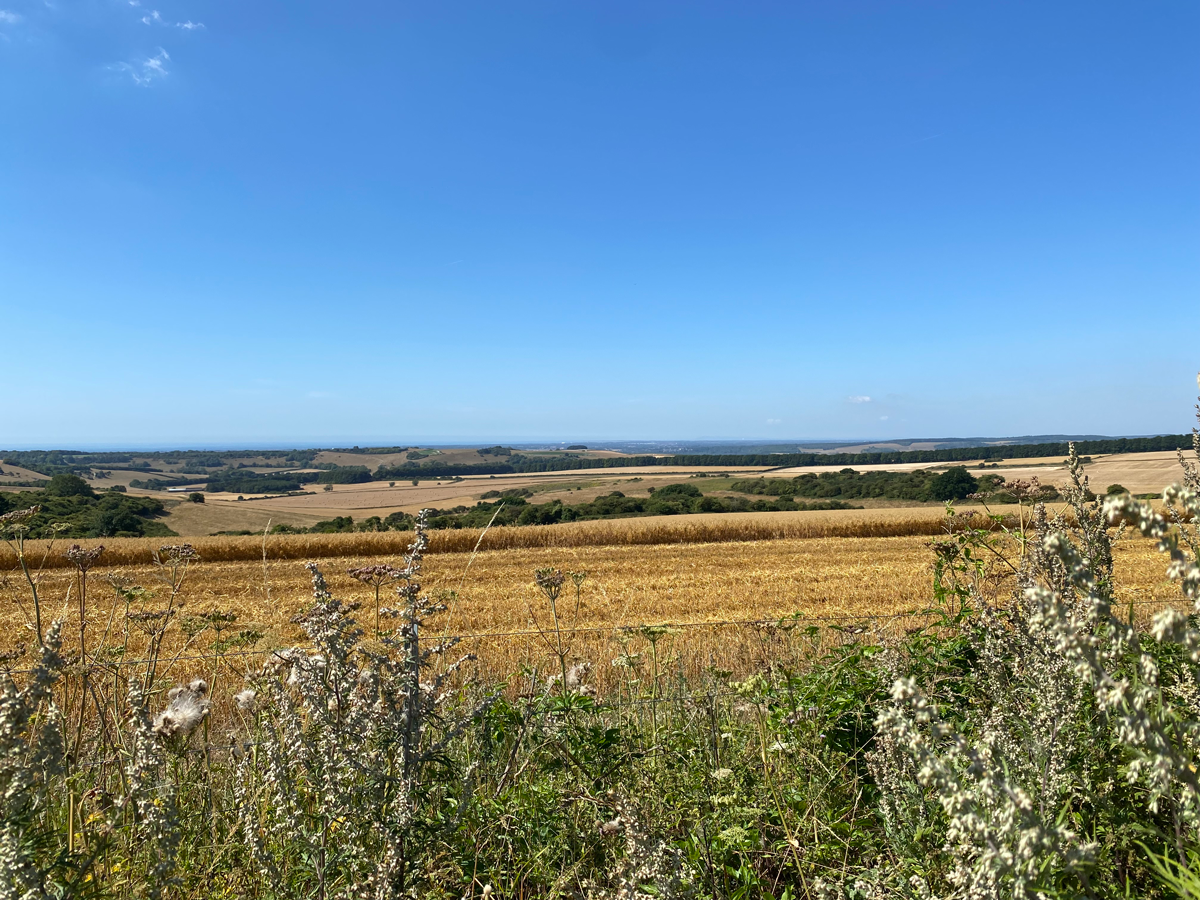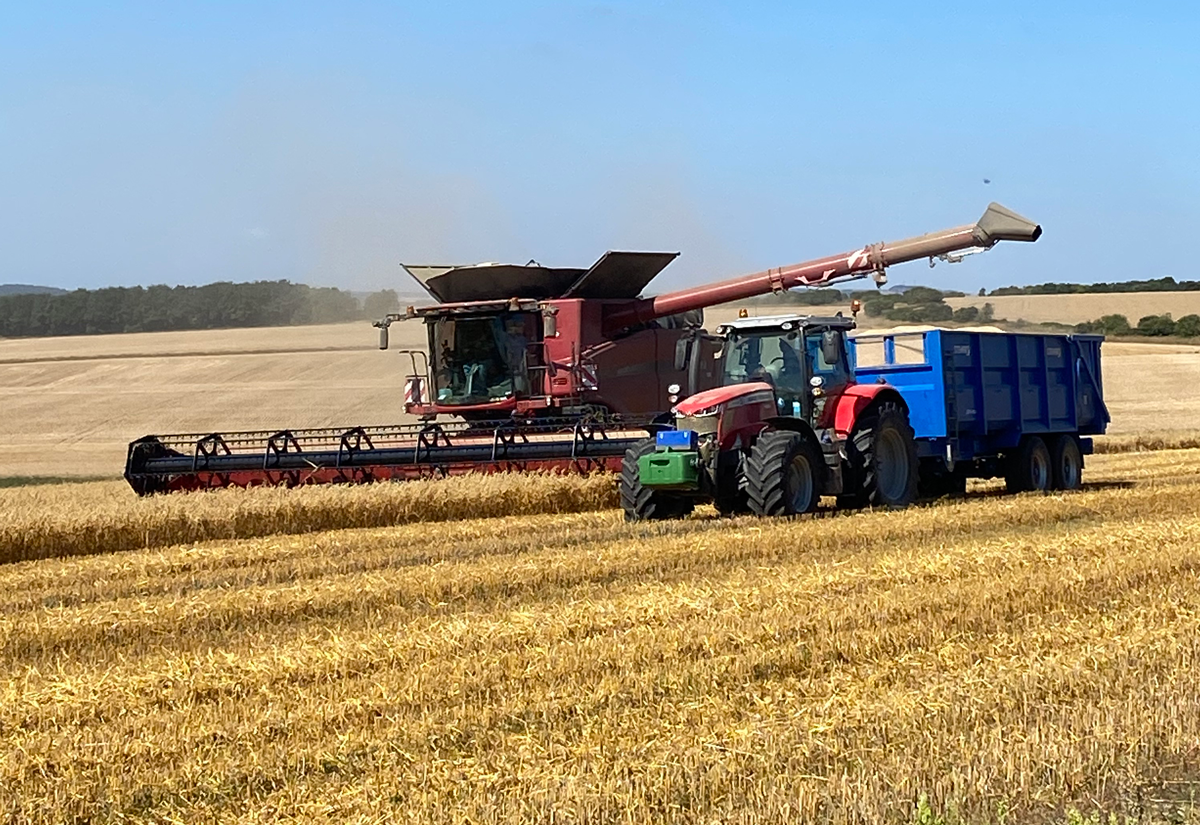
I looked down from the ridge of the Sussex Downs towards the sea and Arundel Castle as the harvest was being brought in on the Angmering Park Estate. The great combine harvester processed around the field accompanied by tractors and trailers to capture the precious, golden grain.
And as we walked a Red Kite circled over a field of happy, grazing sheep. The wild flowers bordering the chalk path were abundant and alive with insects, birds and butterflies.
It is impressive how the Angering Park Estate has been proactive over many years in balancing the need to produce food for the nation with the needs of nature and conservation. They work at scale investing in technology whilst articulating long term stewardship of the land.
They work hard to achieve a balance between maintaining the fertility of the land and producing food, with close attention to the preservation of nature. They have become increasingly sophisticated in analysing the environment in their fields and in the nature corridors of woodland and hedgerows which they are continuing to create.
Seeing the harvest brought in brought back a precious memory from my youth. The summer I finished school I worked for my God Father, Pete Marshall, bringing in the harvest on the Angmering Park Estate.

Together with his team we forked hay bales by hand onto the old flatbed trailer where they were stacked high and true. The trailer was pulled by a small, ancient Massey Ferguson tractor. It was difficult to discern where the red paint ended and the rust began. Apart from the tractor I suspect that it was a scene unchanged since Victorian times. And at the end of the evening I lay on top of the bales which swayed rhythmically behind the tractor as Uncle Pete drove us gently home, the headlights dim beneath the light of the harvest moon.
Since the Second World War farmers were encouraged by the government to increase yields which have almost doubled since the 1970s and this has led to a perception that food will always be plentiful with little discussion of the carbon footprint of importing food to this country and our responsibilities around that. Perhaps global events will cause our government to promote good husbandry and stewardship in concert with feeding the nation.
It has never been more important to value our farmers and celebrate good stewardship of the land and as consumers to play our part by buying local and British produce whenever we can.